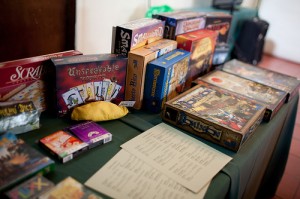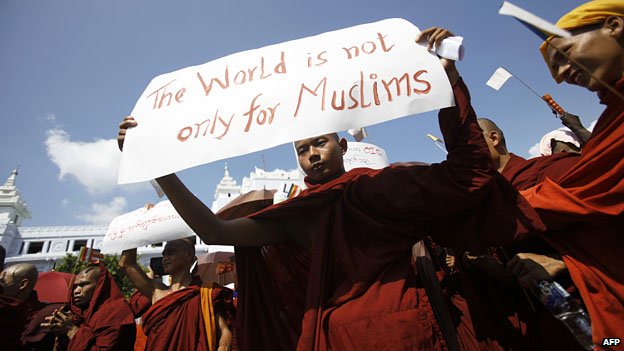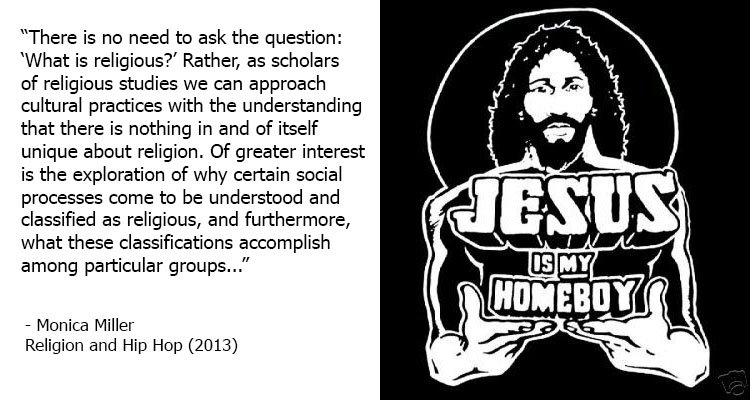![]()
Culture on the Edge‘s Monica Miller is presenting at Skepticon 6, which is held annually in Springfield, Missouri. While there, she’ll be sending us her notes from the field.
Most people who know me well know how much I dislike flying — it makes me anxious, nervous, and worried about being lifted off the “ground of certainty,” so to speak. In order to distract myself from the angst I often feel while being in the air, I turn my own anthropological mirror against myself — as data, taking stock of all the religious-like-type-traces and rituals of certainty that rather unconsciously inform my habitus in moments of perceived uncertainty (I’ll spare you the hilarious and somewhat embarrassing details). Continue reading “Ear Hustlin’: Notes from the Field”


 Monks in Myanmar encouraging violence, while that image challenges common assumptions about those who identify as Buddhists, accounts of such events often actually reinforce those assumptions. On April 30 people identified as Buddhists burned mosques and homes of a minority group identified as Muslim, reportedly resulting in injuries and one death.
Monks in Myanmar encouraging violence, while that image challenges common assumptions about those who identify as Buddhists, accounts of such events often actually reinforce those assumptions. On April 30 people identified as Buddhists burned mosques and homes of a minority group identified as Muslim, reportedly resulting in injuries and one death.  Read
Read  National Public Radio has another fascinating story on folk assumptions and the implications of classification.
National Public Radio has another fascinating story on folk assumptions and the implications of classification.  Q:
Q:  During the 1800’s, British colonizers identified particular conflicts as being “religious,” a description that many now describe as part of the British strategy of Divide and Rule. Scholars have noted examples of British accounts of “religious conflict between Hindus and Muslims” whose details, as the British recorded them, actually undermined such assertions, as participants whom the records identified as Hindus and Muslims participated on both sides of specific conflicts.
During the 1800’s, British colonizers identified particular conflicts as being “religious,” a description that many now describe as part of the British strategy of Divide and Rule. Scholars have noted examples of British accounts of “religious conflict between Hindus and Muslims” whose details, as the British recorded them, actually undermined such assertions, as participants whom the records identified as Hindus and Muslims participated on both sides of specific conflicts.  For
For  In a recent New York Times
In a recent New York Times  My ear caught a line in a TV show last night:
My ear caught a line in a TV show last night: